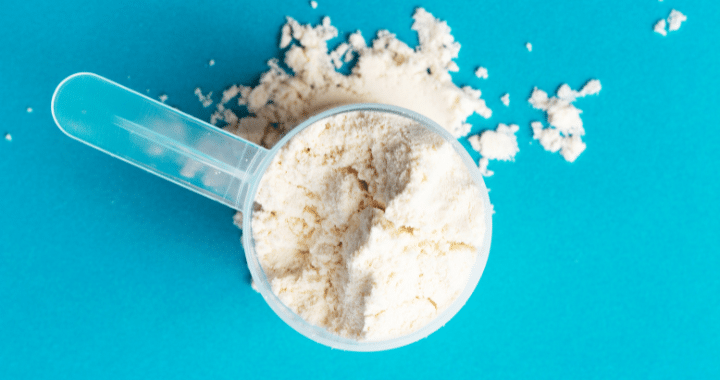Latest Blogs
Plant Protein vs. Whey Protein: A Complete Comparison

Protein supplements are an essential part of many fitness routines, offering a convenient way to meet protein needs for muscle recovery, weight management, and overall health. Among the most popular options are whey protein and plant protein. While whey has traditionally dominated the market, modern plant-based blends, such as those combining pea protein and brown rice protein, now provide a complete amino acid profile, making them an excellent alternative to whey.
What Is Whey Protein?
Whey protein is derived from milk during the cheese-making process. It is a complete protein, meaning it contains all nine essential amino acids the body cannot produce on its own. With fast absorption and high leucine content, whey is a top choice for athletes seeking quick muscle recovery.
What Is Plant Protein?
Plant protein is sourced from natural plants like peas, rice, hemp, chia, soy, and quinoa. While individual plant proteins may lack one or more essential amino acids, blending proteins like pea protein (rich in lysine) and brown rice protein (high in methionine) creates a complete amino acid profile comparable to whey. This innovation in plant protein formulation has revolutionized its efficacy in muscle building and recovery.
Benefits of Plant Protein (Pea + Brown Rice Blend)
- Complete Amino Acid Profile
- The combination of pea protein and brown rice protein ensures all nine essential amino acids are present in sufficient quantities. This makes plant protein blends just as effective as whey for supporting muscle repair and growth.
- Dairy-Free and Allergen-Friendly
- Unlike whey, plant protein is naturally lactose-free, making it suitable for those with lactose intolerance or dairy allergies.
- Gentle on Digestion
- Plant protein blends are less likely to cause bloating or discomfort, which can sometimes occur with whey.
- Rich in Nutrients
- Pea and brown rice proteins are packed with additional nutrients, including fiber, antioxidants, and vitamins, supporting overall health beyond muscle recovery.
- Sustainability
- Plant protein has a lower environmental footprint than whey, requiring fewer resources like water and producing fewer greenhouse gas emissions.
- Versatility in Flavors and Uses
- Plant-based protein powders have come a long way in terms of taste and texture. Many blends now offer smooth consistency and delicious flavors, perfect for shakes, smoothies, or baked goods.
Benefits of Whey Protein
- Quick Absorption
- Whey is rapidly digested, making it ideal for post-workout recovery when muscles need immediate nourishment.
- High Leucine Content
- Leucine is a key amino acid for muscle protein synthesis, and whey is naturally rich in this compound.
- Proven Performance
- Whey protein has a long history of being an effective supplement for building and maintaining muscle mass.
- Convenient Availability
- Whey is widely available in various forms, including isolates and hydrolysates, catering to different dietary needs.
Comparing the Two
| Feature | Plant Protein (Pea + Rice Blend) | Whey Protein |
|---|---|---|
| Amino Acid Profile | Complete (with blend) | Complete |
| Digestibility | Gentle on stomach | Can cause bloating for some |
| Allergen-Free | Yes | No (contains dairy) |
| Nutritional Benefits | Includes fiber, antioxidants, and vitamins | Primarily protein-focused |
| Environmental Impact | Lower (plant-based and sustainable) | Higher (dairy-based) |
| Absorption Speed | Moderate | Fast |
Is Plant Protein Right for You?
Plant protein blends, such as those combining pea and brown rice, are an excellent choice for:
- Vegans and vegetarians looking for a complete, plant-based protein source.
- Individuals with lactose intolerance or dairy allergies.
- Eco-conscious consumers who prioritize sustainability.
- Health-conscious individuals interested in nutrient-dense, gentle-on-digestion options.
Conclusion
While whey protein remains a reliable choice for many, plant protein blends have proven to be just as effective in delivering the essential amino acids your body needs. With added benefits like better digestibility, a lighter environmental footprint, and additional nutrients, the combination of pea and brown rice protein offers a compelling alternative to traditional whey supplements.
Whether you’re building muscle, managing weight, or simply looking to boost your protein intake, modern plant-based proteins provide a powerful, complete, and sustainable solution. The choice is yours—both options can help you achieve your fitness and health goals.


